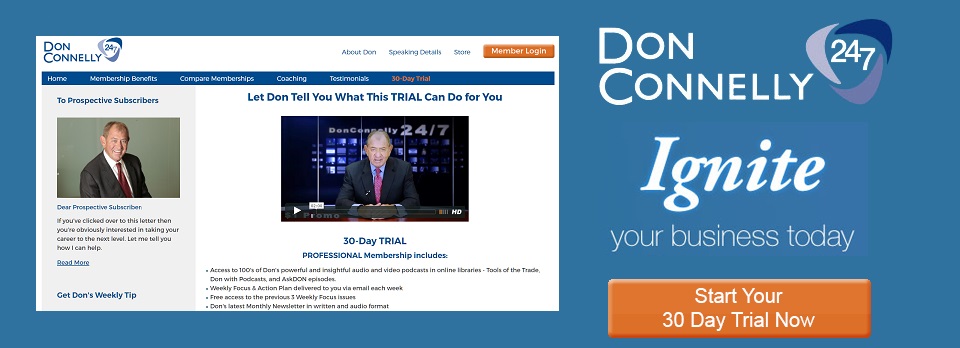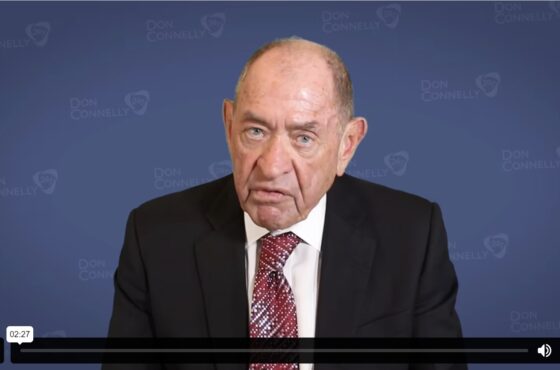Overcoming Objections: Everything Financial Advisors Need to Know about It
 As we all know, the #1 reason for failure among Financial Advisors and Wholesalers is they don’t see enough people.
As we all know, the #1 reason for failure among Financial Advisors and Wholesalers is they don’t see enough people.
What you may not know is that many of them avoid prospecting because they don’t have a clue how to overcome prospects’ objections.
If this is what’s keeping you from having your appointments book full, today’s post will teach you everything you need to know about overcoming objections. Read on.
When do objections occur?
Most commonly, Advisors get objections when prospects see them for advice to start a retirement fund. It’s normal. Delaying taking action is a knee-jerk reaction, especially when undertaking a new venture.
Another situation that causes Advisors to get objections is when they give too much information to the prospect. Prospects don’t understand numbers and they don’t buy what they don’t understand. Talk too much or focus on the numbers, and you risk losing their attention. Verbal spamming invites objections.
And finally, objections occur if the prospect doesn’t like you. If they have to choose between a highly competent but unlikable Advisor, and his or her less competent but much more likable colleague, they will always choose the latter.
Remember that people are not looking for more information. They are looking for someone they can trust. Learn to listen to prospects. When they do all the talking, you come across as likable, trustworthy and smart, and objections are less likely to occur.
What are the only three objections you’ll face?
If a prospect does raise a concern after all, you should know there are only three objections you will really get:
- “I already have an advisor”
- “I don’t have any money”
- “I’m not interested”
There are a lot of variations but in their core, they always boil down to the above three.
If someone told you they can get the same service elsewhere and cheaper, they are really saying they are not interested in doing business with you. If you get the common objection, “I want to think it over”, what your prospect really means is they don’t trust you, and thus – they are not interested in investing with you.
How to overcome objections in three steps
Armed with the knowledge that there are only three objections you will ever get, here’s what to do next.
Step 1: Learn what your prospect’s real objection is.
Is it they already have an advisor? Is it they don’t have enough money to get started? Is it they are not interested – be it they don’t trust you, they don’t like you, they don’t understand your value or why they are paying you a fee? Learn what it is they really object to.
Step 2: Transform their objection into a question.
When a client objects, they are making a statement. They didn’t ask you anything. You cannot reply to a statement. What you can do however is, turn their statement into a question.
When someone says to you, “I already have an Advisor, she’s with Merrill Lynch, and I’m happy with what she is doing for me”, rephrase the sentence and ask for their confirmation.
“If I understand you correctly, you have an Advisor at Merrill Lynch with whom you currently do business and you are pleased. Is that correct?”
Step 3: Overcome the objection by addressing the prospect’s original concern
Once you have rephrased the prospect’s statement into a question, and they have confirmed you’ve understood correctly, it’s time for you to address their concern and ask a question of your own.
To continue the above example, you can say something along the lines:
“I agree with you that Merrill Lynch is a terrific firm and I know you are happy with your Advisor. I also know that not any one person or firm has a corner on all the good ideas. If I can give you one idea that will increase your income, reduce your taxes or both, may I compete for part of your business?”
Who would say ‘no’ to an offer for more money in their pocket?
Hone your soft skills to overcome objections
I hear you say, “Yeah, right, these three steps sound fine but it is easier said than done. It would never work out like that in a real conversation with a prospect.”
Why not?
Once you’ve learned their real objection, turned it into a question and gotten their interest, your only job is to get your point across and make them an offer they simply cannot refuse.
This is where most Advisors fall short because they don’t work on their soft skills.
People are not looking for more information. People are looking for someone they can trust. If people like you, trust you and think you are smart, the objections never see the light of day.
But to become likable, build trust and come across as smart, you need soft skills.
You need to be a good listener to be able to read your prospects, learn what their financial needs and goals are, and figure out what their objections really are.
You need an arsenal of colorful and detailed analogies so you can effectively communicate how you can help them, and in a language they can easily understand and relate to.
You need to be a great and engaging storyteller so you can influence and persuade prospects.
You need good presentation skills in order to capture prospects’ attention and keep them engaged.
All of these soft skills are rarely, if ever, taught in training, and they in fact matter the most for the success of the above three-step formula to overcoming objections.
You think it’s easier said than done – and you are right. Nobody has learned to overcome objections overnight.
Overcoming objections is a rote exercise and takes practice. Only if you purposefully develop the needed soft skills, will you be able to overcome objections. So much that one day, you won’t even get them to begin with.
Overcoming objections is how you help clients understand your value and commit to you long-term.
Successfully overcoming objections is a stepping stone in the relationship-building process. If you, the Advisor, fail to address the prospect’s concerns, he or she will not trust you. If you succeed in allaying the person’s fears, you are one step closer to gaining trust.
Objections stand between you and opening the account, so the sooner and better you deal with them, the faster you will open the account.





Hello Diana. I deal with clients over the phone and won’t get to see them face to face ever. How do I get them to but into my ideas or even give me the time of day to listen to my pitch? I schedule remote consultations for insurance advisors. I make money per sign up and work only for commission no basic salary or anything like that. I’m really concerned.
Thanks.
Best regards
Simbulele
Hello Simbulele, check out a post we published earlier today, about mistakes to avoid to improve cold calling results. Also, for ideas on how to improve your intro, you may check out another post, about building an elevator speech that wins.
Hope this helps! Thanks for reading and commenting.
~Diana